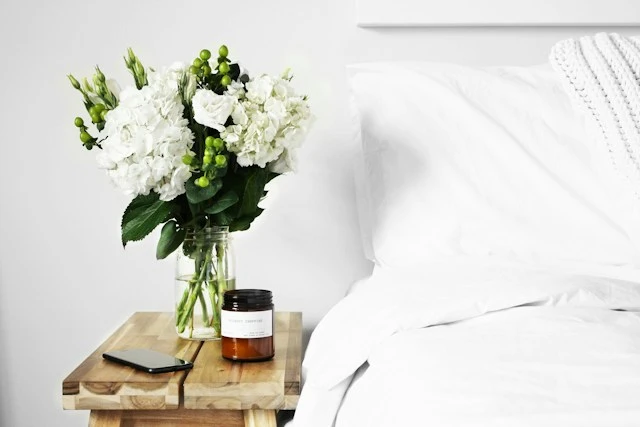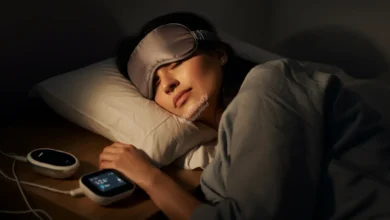10 Essential Tips for Better Sleep Hygiene

Did you know that one-third of adults in the United States don’t get enough sleep? Poor sleep can lead to a host of health problems, from weight gain to decreased cognitive function. But here’s the good news: by improving your sleep hygiene, you can dramatically enhance the quality of your rest and, in turn, your overall well-being.
What is Sleep Hygiene?
Sleep hygiene refers to the habits and practices that are conducive to sleeping well on a regular basis. Good sleep hygiene is crucial for maintaining both physical and mental health. By adopting better sleep habits, you can:
- Fall asleep more easily
- Stay asleep throughout the night
- Wake up feeling refreshed and energized
Now, let’s dive into the 10 essential tips that will help you improve your sleep hygiene and transform your nights (and days)!
1. Stick to a Consistent Sleep Schedule
One of the most important aspects of good sleep hygiene is maintaining a regular sleep schedule. This means going to bed and waking up at the same time every day, even on weekends. Why is this so crucial?
- It helps regulate your body’s internal clock (circadian rhythm)
- Improves the quality of your sleep
- Makes it easier to fall asleep and wake up naturally
Tip: Start by setting a consistent bedtime and wake-up time. Stick to this schedule for a few weeks, and you’ll likely notice a significant improvement in your sleep quality.
2. Create a Relaxing Bedtime Routine
Establishing a calming pre-sleep routine signals to your body that it’s time to wind down. This can help you transition from the busyness of the day to a restful night’s sleep. Here are some activities you might include in your bedtime routine:
- Read a book or listen to a relaxing audiobook
- Practice gentle stretching or yoga
- Try meditation or deep breathing exercises
- Take a warm bath or shower
- Write in a journal or practice gratitude
Remember: Consistency is key. Try to perform these activities in the same order each night to reinforce the habit.
3. Optimize Your Sleep Environment
Your bedroom should be a sleep sanctuary. Creating the right environment can significantly impact the quality of your rest. Here’s a checklist for an ideal sleep environment:
- [ ] Keep the room cool (around 65°F or 18°C)
- [ ] Ensure the room is dark (use blackout curtains if needed)
- [ ] Minimize noise (use earplugs or a white noise machine if necessary)
- [ ] Invest in a comfortable mattress and pillows
- [ ] Use breathable, comfortable bedding
Pro tip: Consider using essential oils like lavender in a diffuser to create a calming atmosphere.
4. Limit Exposure to Blue Light Before Bed
Blue light, emitted by electronic devices like smartphones, tablets, and computers, can significantly disrupt your sleep patterns. This type of light suppresses the production of melatonin, the hormone that regulates your sleep-wake cycle. To improve your sleep hygiene:
- Avoid screens for at least 1-2 hours before bedtime
- Use blue light filters on your devices if you must use them
- Switch to warm, dim lighting in the evening
Here’s a comparison of common blue light sources and their effects:
| Source | Blue Light Emission | Impact on Sleep |
|---|---|---|
| Smartphones | High | Significant disruption |
| Tablets | High | Significant disruption |
| LED TVs | Moderate | Moderate disruption |
| E-readers (non-backlit) | Low | Minimal disruption |
| Traditional books | None | No disruption |
5. Be Mindful of Your Diet
What you eat and drink can have a big impact on your sleep quality. Here are some dietary tips for better sleep:
- Avoid caffeine after 2 PM
- Limit alcohol consumption, especially close to bedtime
- Avoid heavy meals within 2-3 hours of going to bed
- Stay hydrated throughout the day, but reduce fluid intake before bed
Foods to avoid before bedtime:
- Spicy foods
- High-fat foods
- Sugary snacks
- Large portions of any food
Instead, opt for sleep-promoting foods like bananas, almonds, or a small serving of whole-grain cereal with milk if you need a light snack.
6. Exercise Regularly, But Not Too Close to Bedtime
Regular exercise can significantly improve your sleep quality. However, the timing of your workouts matters. Here’s what you need to know:
- Aim for at least 30 minutes of moderate exercise most days of the week
- Finish intense workouts at least 3 hours before bedtime
- Light stretching or yoga can be beneficial closer to bedtime
Exercise helps regulate your body’s circadian rhythm, reduces stress, and promotes deeper, more restorative sleep. Just remember to give your body enough time to wind down after vigorous activity.
7. Manage Stress and Anxiety
Stress and anxiety are common culprits behind sleep problems. Try these techniques to calm your mind before bed:
- Practice mindfulness meditation
- Try progressive muscle relaxation
- Use deep breathing exercises
- Write in a worry journal to offload concerns
- Listen to calming music or nature sounds
Remember, managing stress is an ongoing process. Be patient with yourself and try different techniques to find what works best for you.
8. Avoid Long Daytime Naps
While short naps can be refreshing, long daytime naps can interfere with your nighttime sleep. Here’s a quick guide to napping:
| Nap Duration | Effects on Nighttime Sleep |
|---|---|
| 10-20 minutes | Refreshing, minimal impact |
| 30-60 minutes | May cause grogginess, slight impact |
| 60+ minutes | Can significantly disrupt nighttime sleep |
Tip: If you need to nap, aim for a short power nap of 10-20 minutes in the early afternoon.
9. Use Your Bed for Sleep and Intimacy Only
Your brain should associate your bed with sleep and relaxation. Avoid these activities in bed:
- Working on your laptop
- Watching TV
- Scrolling through social media
- Eating meals
- Having intense discussions or arguments
By reserving your bed for sleep and intimacy, you’re training your brain to recognize that being in bed means it’s time to sleep.
10. Consider Natural Sleep Aids
Some natural supplements may help improve sleep quality. However, always consult with a healthcare provider before starting any new supplement regimen.
| Natural Aid | Potential Benefits |
|---|---|
| Melatonin | May help regulate sleep-wake cycle |
| Valerian root | May reduce time to fall asleep |
| Chamomile tea | Can promote relaxation |
| Magnesium | May improve sleep quality |
Remember, these are supplements, not substitutes for good sleep hygiene practices.
Conclusion
Improving your sleep hygiene is a powerful way to enhance your overall well-being. By implementing these 10 essential tips, you can significantly improve your sleep quality and wake up feeling refreshed and energized.
Start by incorporating one or two of these tips into your routine and gradually add more. Remember, consistency is key when it comes to developing better sleep habits.
Call to Action
Take the first step towards better sleep tonight! Choose one tip from this list and commit to trying it for the next week. Keep track of how it affects your sleep quality and overall mood. Your journey to better sleep and a happier, healthier life starts now!



